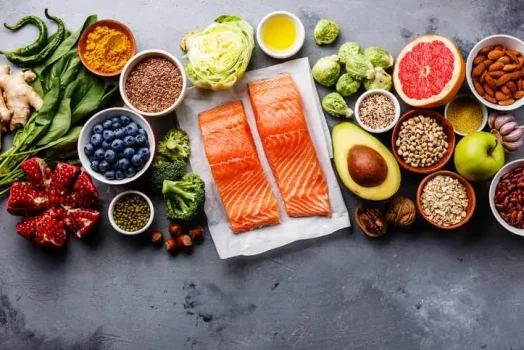If you suffer from a psychiatric disorder, you need to be aware that the foods you eat can affect your mental health. In fact, scientists have discovered so many correlations made between diet and mental health that a new branch of psychiatry is emerging called nutritional psychiatry.
Read on to learn about how the food you eat can help improve your mental health if you suffer from depression or anxiety.
Foods and Nutrients That Can Aid in Anxiety Relief
It is estimated that anxiety disorders affect over 18 percent of the US population every year.
The following foods and nutrients are believed to help combat anxiety and reduce stress levels.
Probiotics
You have likely heard that probiotics are good for your overall health, but you may not realize that they are also good for your mental health.
Serotonin is a neurotransmitter that is often low in people suffering from anxiety, and it promotes a relaxed, upbeat mood and helps regulate sleep. An estimated 95 percent of your body’s serotonin is actually created in your gastrointestinal tract. Your gastrointestinal tract is filled with good bacteria, and consuming plenty of probiotics help keep these good bacteria properly balanced. If this good bacteria is not in balance, then serotonin production decreases.
To help your body produce enough serotonin and ease anxiety symptoms, consume foods and beverages filled with probiotics, such as yogurt, kefir, and kombucha. However, if you find it more convenient, you can take a probiotic supplement instead.
Magnesium
If you suffer from anxiety, you need to consume plenty of magnesium. An estimated 75 of Americans are deficient in this essential nutrient that helps regulate many important processes in your entire body.
One important way magnesium helps combat anxiety is by stimulating the release of a neurotransmitter in your brain called GABA, or gamma-aminobutyric acid. When GABA levels in your brain are low, nerve cells can become over-excited, which can lead to anxiety and even panic attacks.
While you can take magnesium supplements, foods naturally high in magnesium include legumes, seeds, nuts, and many types of leafy greens. Aim to take in 200 to 300 mg of magnesium two to three times a day to help relieve mild anxiety.
Foods and Nutrients That Help Depression
Depressive disorders are also common in the United States, with just under 7 percent of adults experiencing an episode of major depression each year.
Since low serotonin levels are also linked to depression, sufferers of depression can benefit from probiotics, just like those suffering from anxiety disorders. In addition, the following foods and nutrients have been shown to aid in depression relief.
Fruits and Vegetables of All Types
Several mental health studies have shown a correlation between produce intake and symptoms of depression. One study revealed that young adults who consumed an average of just under four servings of produce every day after previously eating a diet that lacked produce experienced a boost in mental well-being in just two weeks. Another study revealed that people with good mental health eat more produce and drink more fruit juice than those experiencing mental health issues.
While the reason produce consumption benefits mental health is unclear, experts believe that a high intake of antioxidants, such as those found in produce, combats oxidative stress in the brain that may contribute to depression.
Vitamin D
Many studies have shown that people experiencing depression often have very low levels of vitamin D in their bodies. Since vitamin D is produced naturally when the sun’s rays hit your skin, your vitamin D levels may be very low if do not get outdoors much.
Experts believe that vitamin D helps fight depression by increasing the level of serotonin and other helpful neurotransmitters in your brain.
Take a vitamin D supplement daily to help improve your mood slowly over the course of several weeks. Since magnesium levels in your body can drop as you increase your vitamin D intake, make sure to take a magnesium supplement along with your vitamin D supplement.
Reach out to the Life Adjustment Team for help tackling serious mental health issues that cannot be tackled with diet alone.








